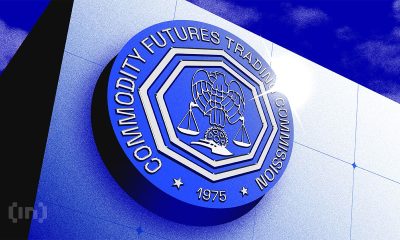Market
VanEck’s MEMECOIN Index Outshines Other Crypto Indices

VanEck, a New York-based asset management giant, has launched a new financial index. Dubbed the MarketVector Meme Coin Index (MEMECOIN), this index tracks the largest meme coins. It aims to cover the top six meme coins, including Dogecoin (DOGE), Shiba Inu (SHIB), PEPE, Floki Inu (FLOKI), Dogwifhat (WIF), and BONK.
VanEck’s move taps into meme-based cryptocurrencies’ explosive popularity and potential high returns. It offers investors a structured approach to this often chaotic sector.
Comparing the MEMECOIN Index with Other Crypto Indices
The MEMECOIN index surged by 195% over the past year. It outperformed the S&P Bitcoin Index, which recorded a 127.21% gain in the same period.
The performance starkly contrasts even when compared with other MarketVector indices, such as the MarketVector Centralized Exchanges Index (MVCEX). MVCEX has been down 71.43% in the year-to-date (YTD) time frame. Meanwhile, MEMECOIN has been up 137.96% in the same period.
Read more: What Are Meme Coins?
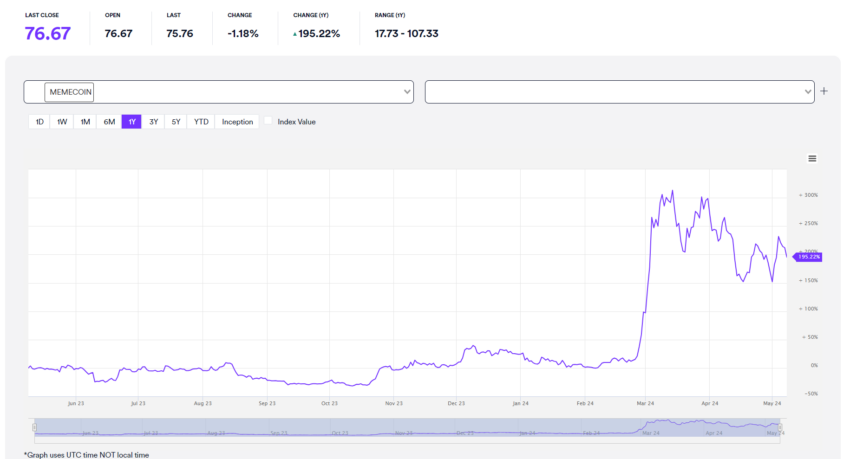
This growth shows the increasing interest in meme coin investments. It also presents the unique appeal of meme-based digital assets.
As of May 9, 2024, meme coins boast a cumulative market capitalization of $50.93 billion. Furthermore, a CoinGecko report reveals that meme coins outperformed other crypto narratives in the first quarter 2024.
They did better than real-world assets (RWA) and layer-2 (L2) in terms of profitability. This trend reflects the broader acceptance of meme coins as investment vehicles.
The allure of meme coins shines through in the success stories of investors like Xremlin. Recently, Xremlin claimed they had turned a $5,000 investment into $200,000 by trading meme coins.
Xremlin shared the secret recipe behind this success. They highlight the importance of timing, market sentiment, and understanding meme coin dynamics. These elements are crucial for capitalizing on the rapid shifts in this market segment.
However, it is important to note the risks of meme coins. Ken Timsit, Managing Director at layer-1 (L1) blockchain Cronos, emphasized the volatility and potential financial risks in meme coin investment.
“Meme coin projects are volatile, and they can be financially risky. Paradoxically, they seem to carry lower regulatory risk than some more serious projects that have been targeted recently, because their team’s footprint is very small,” Timsit told BeInCrypto.
Read more: 7 Hot Meme Coins and Altcoins that are Trending in 2024
Therefore, Timsit suggested the importance of diversification in meme coin investments.
“While the dream of overnight riches can be compelling for many people, it is important that users and developers continue to pay attention to other blockchain use cases such as DeFi, Web3 gaming, decentralized social platforms, and decentralized infrastructure,” he added.
Disclaimer
In adherence to the Trust Project guidelines, BeInCrypto is committed to unbiased, transparent reporting. This news article aims to provide accurate, timely information. However, readers are advised to verify facts independently and consult with a professional before making any decisions based on this content. Please note that our Terms and Conditions, Privacy Policy, and Disclaimers have been updated.
Market
Coinbase Tries to Resume Lawsuit Against the FDIC


Coinbase asked a DC District Court if it could resume its old lawsuit against the FDIC. Coinbase sued this regulator over Operation Choke Point 2.0 and claimed that it’s still refusing to release relevant information.
Based on the information available so far, it’s difficult to draw definitive conclusions. The FDIC maintains that it responded to its opponents’ questions truthfully, though it has shown delays in the past.
Coinbase vs the FDIC
Coinbase, one of the world’s largest crypto exchanges, has been in a few fights with the FDIC. The firm has been pursuing the FDIC over Operation Choke Point 2.0 for months now, and has achieved impressive results. Despite this, however, Coinbase is asking the DC District Court to resume its litigation against the regulator:
“We’re asking the Court to resume our lawsuit because the FDIC has unfortunately stopped sharing information. While we would have loved to resolve this outside of the legal system – and we do appreciate the increased cooperation we’ve seen from the new FDIC leadership – we still have a ways to go,” claimed Paul Grewal, Coinbase’s Chief Legal Officer.
The FDIC has an important role in US financial regulation, primarily dealing with banks. This gave it a starring role in Operation Choke Point 2.0, hampering banks’ ability to deal with crypto businesses. However, it recently started a pro-crypto turn, releasing tranches of incriminating documents and revoking several of its anti-crypto statutes.
Grewal said that he “appreciated the increased cooperation” from the FDIC but that the cooperation stopped weeks ago. According to Coinbase’s filing, the FDIC hasn’t sent any new information since late February and claimed in early March that the exchange’s subsequent requests were “unreasonable and beyond the scope of discovery.”
On one hand, the FDIC has previously been slow to make relevant disclosures in the Coinbase lawsuit. On the other hand, Operation Choke Point 2.0 sparked significant tension within the industry, and a determined group is now aiming to significantly weaken the regulatory bodies involved.
Until the legal battle continues, it’ll be difficult to make any definitive statements. The FDIC will likely have two weeks to respond to Coinbase’s request.
Disclaimer
In adherence to the Trust Project guidelines, BeInCrypto is committed to unbiased, transparent reporting. This news article aims to provide accurate, timely information. However, readers are advised to verify facts independently and consult with a professional before making any decisions based on this content. Please note that our Terms and Conditions, Privacy Policy, and Disclaimers have been updated.
Market
BlackRock’s Larry Fink Thinks Crypto Could Harm The Dollar


Larry Fink, CEO of BlackRock, claimed in a recent letter that Bitcoin and crypto could damage the dollar’s international standing. If investors treat Bitcoin as an inflation hedge to the dollar, it could precipitate serious trouble.
However, he was also adamant that the industry offers a lot of advantages, particularly through tokenization.
Larry Fink Sees Opportunity in Crypto
BlackRock is the leading Bitcoin ETF issuer in the US, and its CEO Larry Fink has long been bullish on Bitcoin. However, as Fink described in his most recent Annual Chairman’s Letter to investors, crypto’s best interest doesn’t always align with TradFi or the dollar.
“The US has benefited from the dollar serving as the world’s reserve currency for decades. But that’s not guaranteed to last forever. By 2030, mandatory government spending and debt service will consume all federal revenue, creating a permanent deficit. If the US doesn’t get its debt under control… America risks losing that position to digital assets like Bitcoin,” he said.
To be clear, Fink insisted that he supports crypto and listed some practical problems that he believes it can solve. He expressed a particular interest in asset tokenization, claiming that a digital-native infrastructure would improve and democratize the TradFi ecosystem.
Despite these advantages, Fink recognizes the danger that crypto can present to the US economy if not properly managed. He addressed the longstanding practice of using crypto to hedge against inflation, a wise practice for many assets.
However, if a wide swath of investors think Bitcoin is more stable than the dollar, it would threaten USD’s status as the world reserve currency. A scenario like that would be very dangerous to all of TradFi, and Fink has a particular interest in protecting BlackRock. Such an event would doubtlessly impact crypto as well.
“Decentralized finance is an extraordinary innovation. It makes markets faster, cheaper, and more transparent. Yet that same innovation could undermine America’s economic advantage if investors begin seeing Bitcoin as a safer bet than the dollar,” Fink added.
He didn’t offer too many specific solutions to this growing problem, but Fink isn’t the only person concerned with the issue. President Trump recently suggested that stablecoins could promote dollar dominance worldwide. Even if the dollar is seen as unstable, its adoption within a rapidly growing global industry like stablecoins could help reinforce its strength and relevance.
Of course, there are also drawbacks to Trump’s plan. Larry Fink acknowledged a possible threat from crypto, but continues to espouse its utility. Its benefits are too good to ignore.
Disclaimer
In adherence to the Trust Project guidelines, BeInCrypto is committed to unbiased, transparent reporting. This news article aims to provide accurate, timely information. However, readers are advised to verify facts independently and consult with a professional before making any decisions based on this content. Please note that our Terms and Conditions, Privacy Policy, and Disclaimers have been updated.
Market
XRP Bears Lead, But Bulls Protect Key Price Zone
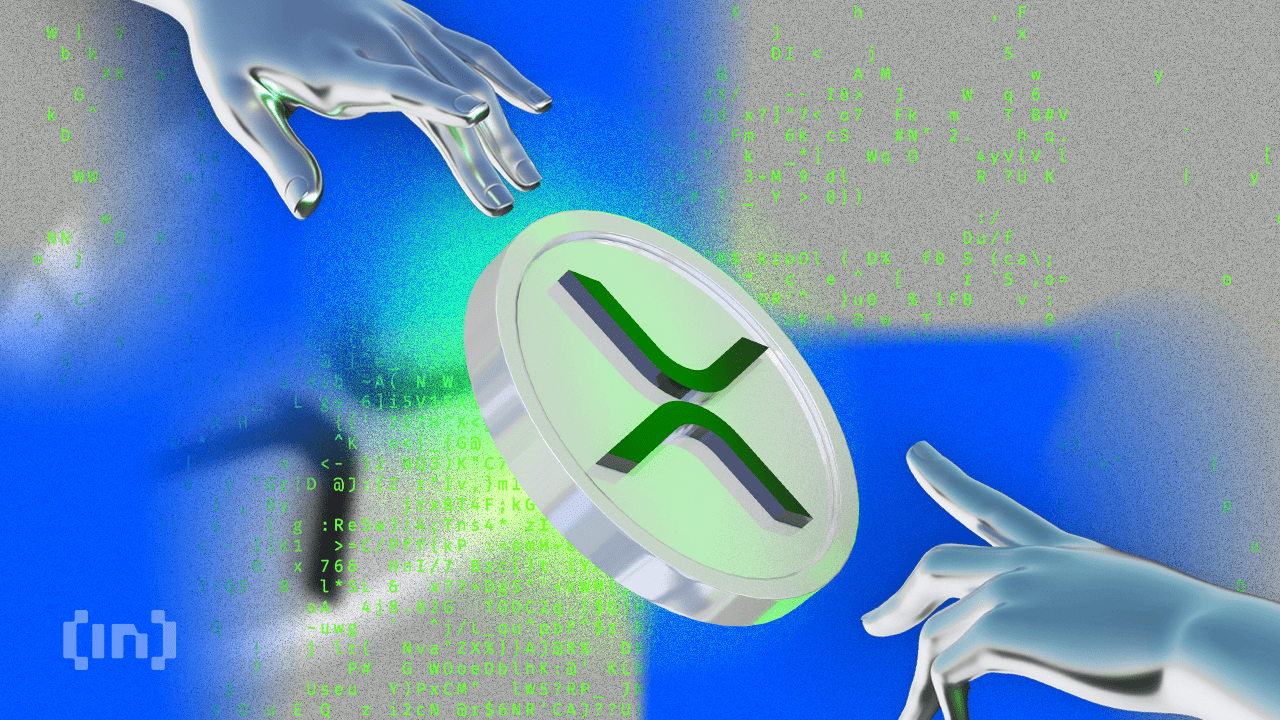
XRP has experienced a significant downturn in recent price action, with its value dropping nearly 15% over the past seven days as bears maintain control of the market. The coin’s technical indicators are showing mixed signals, with the RSI rebounding from oversold territory while Ichimoku Cloud patterns continue to paint a predominantly bearish picture.
Despite yesterday’s test of the critical $2.06 support level resulting in a temporary bounce, the momentum remains negative, with short-term EMAs positioned below long-term averages. The move from extreme oversold conditions suggests XRP might be entering a consolidation phase before its next significant price movement.
XRP RSI Is Up From Oversold Levels
XRP’s Relative Strength Index (RSI) is currently at 36.37, showing a notable rebound from a low of 27.49 just a few hours ago. This upward shift indicates a shift in momentum, as buying interest has started to pick up after a period of heavy selling pressure.
Although still in the lower range, this recovery suggests that traders may be stepping back in. That could mean they are potentially viewing the recent dip as an opportunity.

RSI is a widely used momentum indicator that measures the speed and change of price movements on a scale from 0 to 100. Readings below 30 typically indicate that an asset is oversold and may be undervalued, while readings above 70 suggest it is overbought and could be due for a correction.
XRP’s bounce from 27.49 to 36.37 signals that it may have just exited oversold conditions. This could mean that the recent selling phase is easing. If the buying momentum continues to build, XRP might be entering the early stages of a potential recovery.
XRP Ichimoku Cloud Shows A Bearish Scenario
XRP’s Ichimoku Cloud chart shows that the price action remains below both the red baseline (Kijun-sen) and the blue conversion line (Tenkan-sen). That indicates the prevailing momentum is still bearish.
The candles are also forming well beneath the cloud, which reflects a broader downtrend.
When the price is under all major Ichimoku components like this, it typically signals continued downward pressure unless a strong reversal breaks those resistance levels.
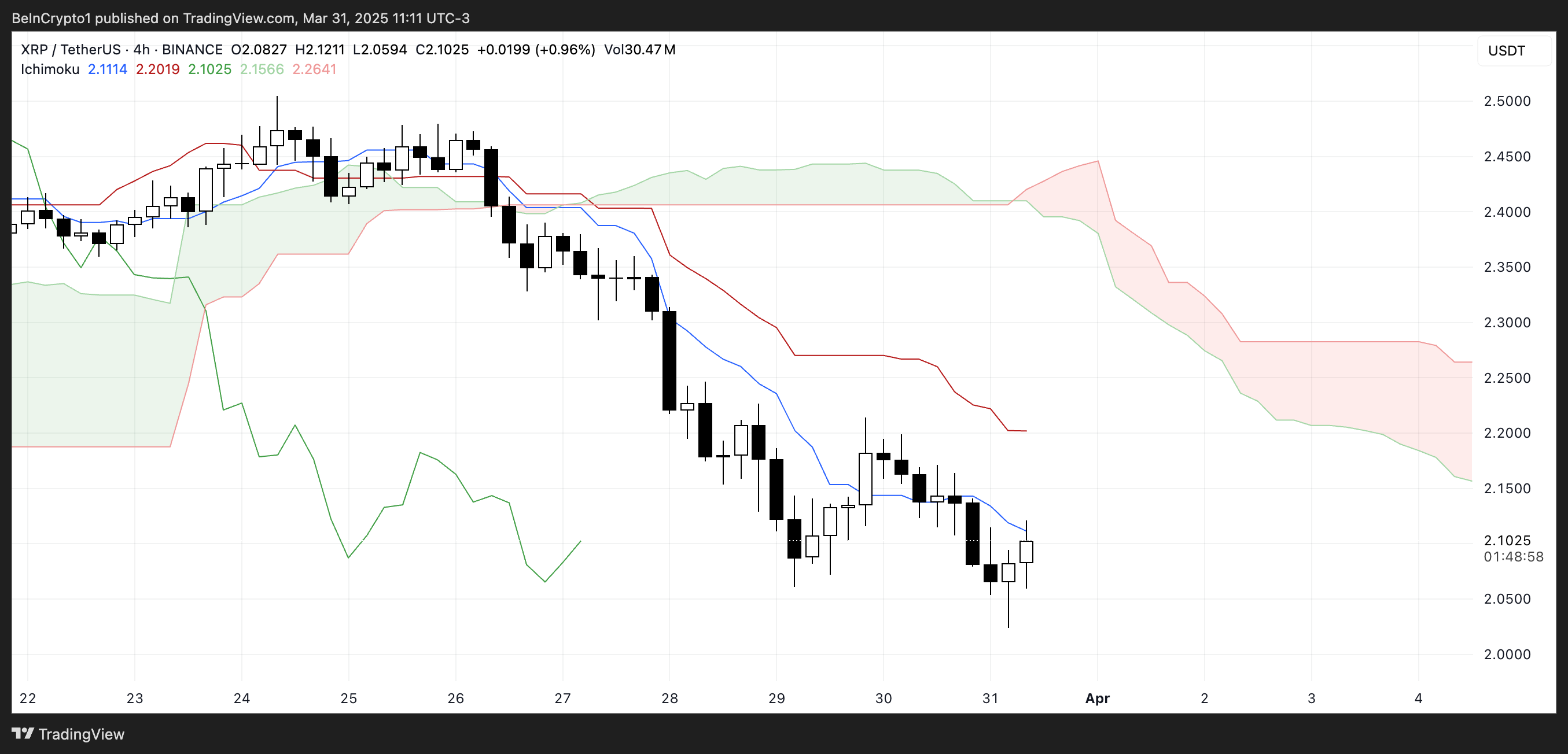
Additionally, the cloud ahead is red and spans horizontally with a downward slope, reinforcing the bearish outlook in the near term. The thickness of the cloud suggests moderate resistance if the price attempts to move upward.
However, some consolidation is evident in the recent candles, showing that sellers may be losing some control.
For any potential trend reversal, XRP would need to break above the Tenkan-sen and Kijun-sen, and eventually challenge the cloud itself — a move that would require a clear uptick in momentum.
XRP Could Rise After Testing An Important Support Yesterday
XRP’s EMA lines are clearly aligned in a bearish formation, with the short-term averages sitting well below the long-term ones and a noticeable gap between them—highlighting strong downward momentum.
Yesterday, XRP price tested the support level at $2.06 and rebounded, showing that buyers are still active at that zone. However, this support remains critical. If it is tested again and fails to hold, XRP could fall further. Its next major support sitting around $1.90.
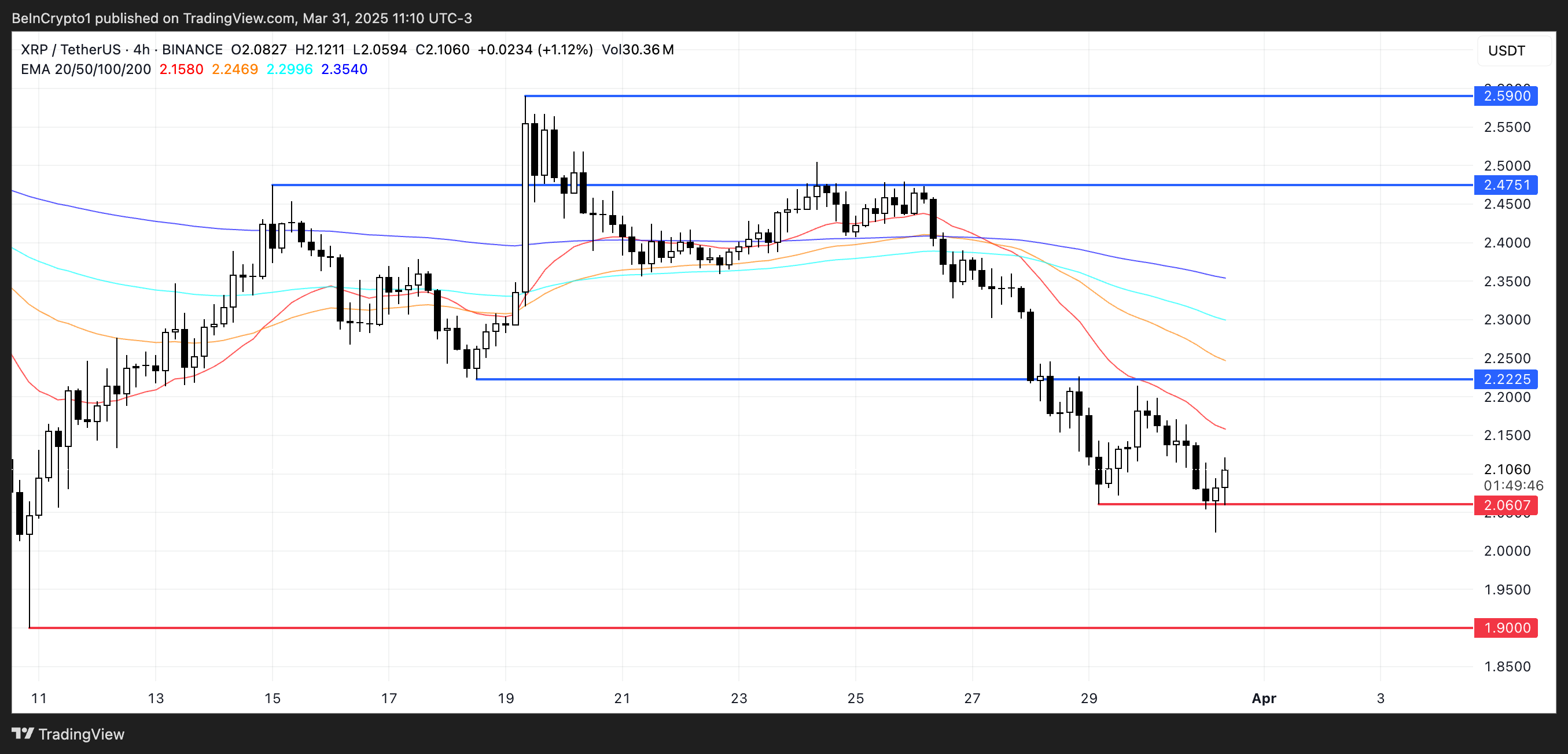
If the trend begins to shift and XRP breaks above the short-term EMAs, the first key resistance to watch is at $2.22. A successful move above this level could trigger a stronger recovery, potentially pushing the price toward $2.47.
If bullish momentum continues, the next upside target would be $2.59. For now, though, the EMA structure still leans bearish. XRP would need sustained buying pressure to flip the trend and aim for those higher resistance levels.
Disclaimer
In line with the Trust Project guidelines, this price analysis article is for informational purposes only and should not be considered financial or investment advice. BeInCrypto is committed to accurate, unbiased reporting, but market conditions are subject to change without notice. Always conduct your own research and consult with a professional before making any financial decisions. Please note that our Terms and Conditions, Privacy Policy, and Disclaimers have been updated.
-
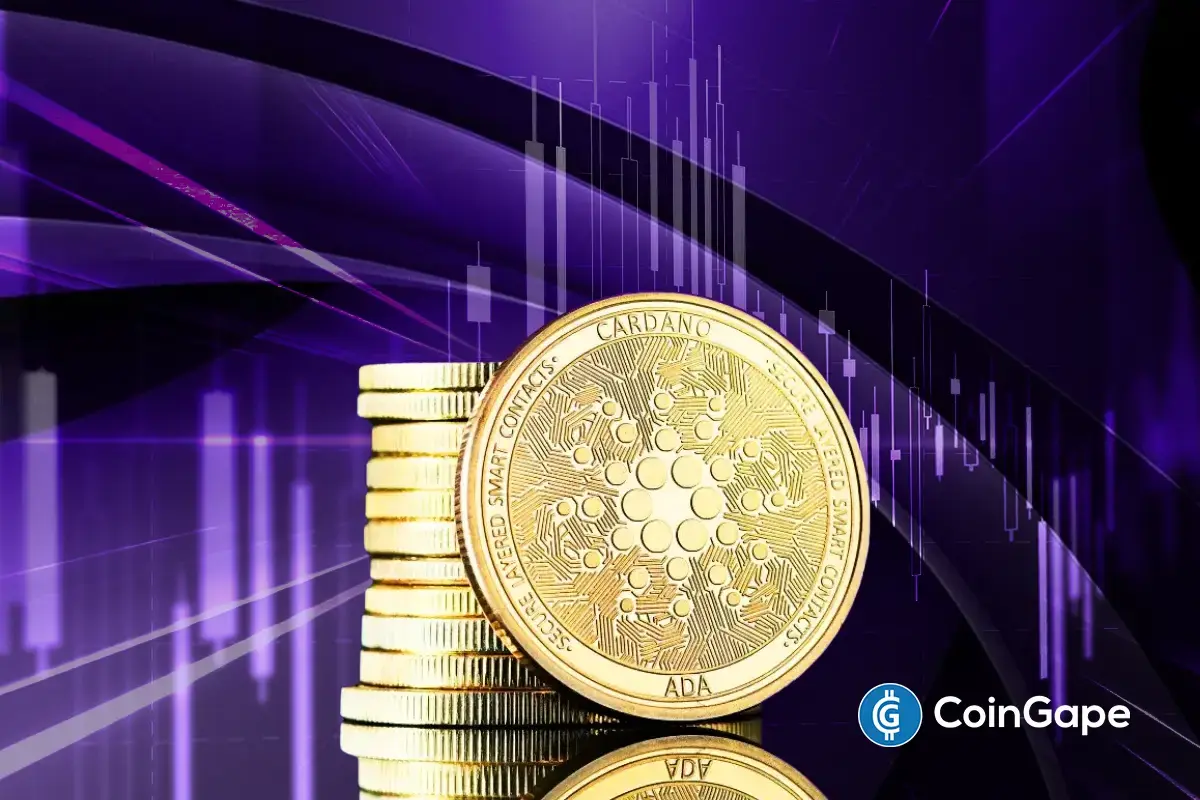
 Altcoin23 hours ago
Altcoin23 hours agoCardano Price Eyes Massive Pump In May Following Cyclical Patern From 2024
-

 Market19 hours ago
Market19 hours agoBitcoin Bears Tighten Grip—Where’s the Next Support?
-

 Market18 hours ago
Market18 hours agoEthereum Price Weakens—Can Bulls Prevent a Major Breakdown?
-
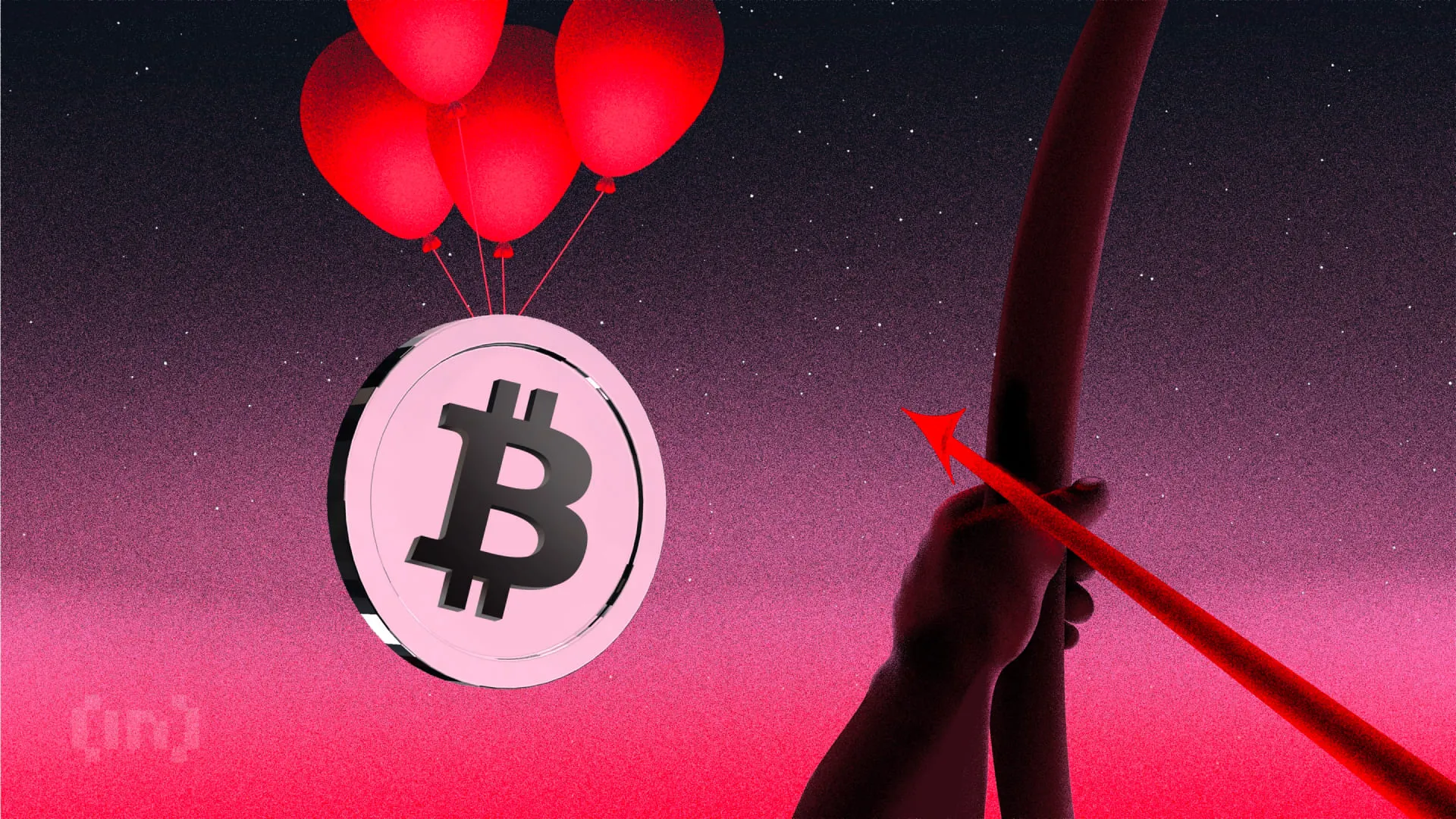
 Market15 hours ago
Market15 hours agoBitcoin Price Nears $80,000; Fuels Death Cross Potential
-

 Market9 hours ago
Market9 hours ago3 Altcoins to Watch in the First Week of April 2025
-

 Ethereum14 hours ago
Ethereum14 hours agoEthereum Is ‘Completely Dead’ As An Investment: Hedge Fund
-
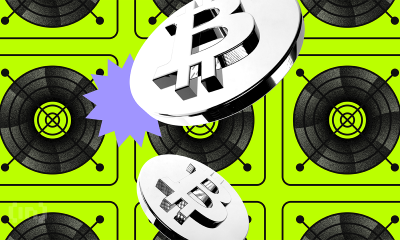
 Market8 hours ago
Market8 hours agoBitcoin Mining Faces Tariff Challenges as Hashrate Hits New ATH
-

 Market14 hours ago
Market14 hours agoThis Is How Dogecoin Price Reacted To Elon Musk’s Comment









